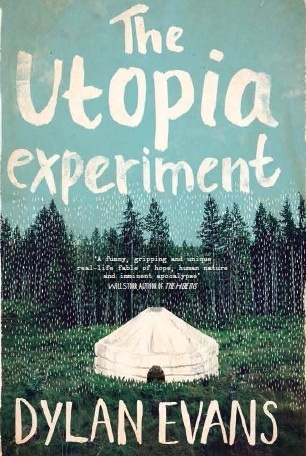What do you think?
Rate this book


225 pages, Paperback
First published February 12, 2015

 BOTW
BOTW http://www.bbc.co.uk/programmes/b059crs2
http://www.bbc.co.uk/programmes/b059crs2 1: Evans left his post to run an experiment. He set up a camp that would create the conditions for a post-apocalyptic world. It was established in the Scottish Highlands with a collection of people chosen for talents and skills necessary in a life without technology or comforts.
1: Evans left his post to run an experiment. He set up a camp that would create the conditions for a post-apocalyptic world. It was established in the Scottish Highlands with a collection of people chosen for talents and skills necessary in a life without technology or comforts.At least the annihilation of the human race - or its transmogrification into silicon - resolves the precarious uncertainty of present shock. [...] Apocalypto gives us a way out. A line in the sand. An us and a them. And, more important, a before and after.
That’s why it’s important that we distinguish between valid concerns about the survival of our species and these more fantastic wishes for reversal and recognition - the story elements at the end of all heroic journeys. If anything, the common conflation of so many apocalypse scenarios - bird flu, asteroid, terrorist attack - camouflages ones that may already be in progress, such as climate change or the slow poisoning of the oceans. [...]
To many, it’s easier, or at least more comforting, to approach these problems as intractable. [...] The hardest part of living in present shock is that there’s no end and, for that matter, no beginning. It’s a chronic plateau of interminable stresses that seem to have always been there. There’s no original source to blame and no end in sight. This is why the return to simplicity offered by the most extreme scenarios is proving so alluring to so many of us.